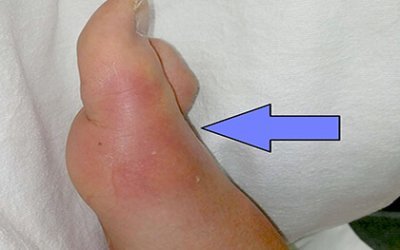How To Reduce The Risk Of Recurrent Urinary Tract Infections (UTI)

Welcome to our helpful guide about Urinary Tract Infections (UTIs). UTIs are quite common and caused by bacteria that can affect your urinary system, mainly the bladder and urethra. Throughout this blog, we’ll break down the basic facts about UTIs, including what causes them, ways to prevent them, effective ways to manage them, and simple home remedies backed by evidence. We want to make sure you stay informed and feel confident in understanding how to keep your urinary tract healthy. Stick with us as we explore the essential details step by step.
What is Urinary Tract Infection?
A UTI, or urinary tract infection, is a condition that occurs when bacteria enter the urinary tract and cause an infection. The urinary tract includes the bladder, kidneys, ureters, and urethra, which are parts of the body responsible for removing waste and excess fluids through urine.
UTIs are more common in women than in men and can cause symptoms such as a frequent urge to urinate, a burning sensation during urination, and lower abdominal discomfort. They are typically treated with antibiotics prescribed by a doctor.
It’s important to drink plenty of water and maintain good hygiene practices to reduce the risk of UTIs. If someone suspects they have a UTI, it’s advisable to seek medical attention for proper diagnosis and treatment.
Complications of UTI:
UTIs, or urinary tract infections, can lead to complications if not treated promptly. Here are some potential complications:
Kidney Infection (Pyelonephritis): If a UTI spreads to the kidneys, it can cause a more serious infection called pyelonephritis. This can lead to fever, back pain, and can be more challenging to treat than a simple bladder infection.
Recurrent Infections: Some people may experience recurrent UTIs, especially if the underlying cause is not addressed. This can lead to a cycle of infections and may require additional medical attention.
Sepsis: In severe cases, a UTI can lead to sepsis, which is a life-threatening condition where the infection spreads throughout the body. This requires immediate medical attention and hospitalization.
Complications in Pregnant Women: UTIs during pregnancy can increase the risk of complications such as preterm birth and low birth weight. It’s important for pregnant women to receive prompt treatment for UTIs.
Scarring or Damage to the Urinary Tract: In some cases, repeated UTIs can cause scarring or damage to the urinary tract. This may lead to long-term issues with urinary function.
It’s crucial to recognize and treat UTIs early to prevent these complications.
Causes of Urinary Tract Infection:
UTIs, or urinary tract infections, are usually caused by bacteria entering the urinary tract. The most common culprit is a type of bacteria called Escherichia coli (E. coli), which normally lives in the intestines. Here are some common causes:
Bacterial Entry: Bacteria can enter the urethra (the tube that carries urine from the bladder out of the body) and travel up into the urinary tract. This can happen during activities like sexual intercourse, improper wiping after using the toilet, or using a catheter.
Incomplete Bladder Emptying: If the bladder doesn’t empty completely, it creates an environment where bacteria can thrive. Conditions that obstruct urine flow, such as kidney stones or an enlarged prostate in men, can contribute to incomplete bladder emptying.
Weakened Immune System: A weakened immune system, whether due to certain medical conditions or medications, can make the body less able to fight off bacteria, increasing the risk of UTIs.
Hormonal Changes: Changes in hormonal levels, especially in women, can make them more susceptible to UTIs. This is why some women may experience UTIs during pregnancy, menopause, or while using certain types of birth control.
Urinary Tract Abnormalities: Some individuals may have structural abnormalities in the urinary tract from birth, making it easier for bacteria to cause infections.
Catheter Use: Using a urinary catheter, a tube inserted into the bladder, can introduce bacteria into the urinary tract, increasing the risk of infection.
Understanding these causes can help individuals take preventive measures, such as practicing good hygiene, staying hydrated, and addressing underlying medical conditions, to reduce the risk of developing UTIs.

Management Strategies:
Managing UTIs (urinary tract infections) involves a combination of self-care measures and medical interventions. Here are some simple strategies:
Herbs with Antibiotic Properties: While there are herbs that are traditionally believed to have antimicrobial properties like Garlic, Oregano, and Turmeric, it’s important to note that using herbs as a substitute for prescribed antibiotics is not recommended. Antibiotics prescribed by a healthcare professional are the standard and most effective treatment for bacterial infections like UTIs (urinary tract infections). However, some herbs are believed to have potential antimicrobial properties and may be considered complementary measures.
Hydration: Drinking plenty of water helps flush out bacteria from the urinary tract. It also promotes frequent urination, which can help eliminate bacteria. Aim to drink enough water throughout the day.
Pain Relief: Herbs, such as Chamomile, Horsetail, and Dandelion can help to reduce the discomfort associated with UTI symptoms like pain and fever. Always consult with professionals before usage.
Avoiding Irritants: Stay away from substances that may irritate the urinary tract, such as caffeine, alcohol, spicy foods, and nicotine. These can exacerbate symptoms and slow the healing process.
Probiotics: Some studies suggest that probiotics may help prevent recurrent UTIs by promoting a healthy balance of bacteria in the gut and urinary tract. However, more research is needed, and individuals should consult their healthcare provider before using probiotics.
Good Hygiene Practices: Wipe from front to back after using the toilet to prevent the spread of bacteria. Additionally, urinate before and after sexual activity to help flush out any bacteria that may have entered the urethra.
Cranberry Products: Some people believe that cranberry juice or supplements may help prevent UTIs, but scientific evidence is mixed. While it may not be a cure, it’s a safe option for some and can be included as part of a general healthy diet.
Exploring Herbal Remedies
Indian Blackberry or Jamun, Java Plum (Eugenia jambolana): Eat five fruits every morning for a few days. It will provide relief from the pain and irritation.
Gokhru (Tribulus terrestris): Take 1 teaspoon of crushed fruit and half a teaspoon of coriander seeds and boil in three cups of water till the volume is reduced to half. Take two tablespoons twice daily for a few days.
Gale Of Wind (Phyllanthus amarus): Grind 1 tablespoon of the whole plant (you can cut it into pieces to measure) along with 2 tablespoons of Durva (Cynodon dactylon) (cut it into pieces to measure) into a very fine paste. Mix with one cup of buttermilk and take every morning.
Durva (Cynodon dactylon): Boil One teaspoon of cleaned roots of Cynodon along with 1/8 tablespoon of white paper in a glass of water. Add 1/8 tablespoon white butter while drinking.
Aloe Vera: Mix 1/2 cup juice of Aloe vera with 1/2 teaspoon butter, 1/4th teaspoon tailed pepper powder, and 1 teaspoon honey. Eat it once a day. Know more about Aloe vera remedies.
It is important to use aloe vera products specifically designed for internal consumption and consult with a healthcare professional.
Always remember that the effectiveness of herbal remedies can vary, and individual responses may differ. It’s crucial to consult with your healthcare provider before trying any herbal supplements, especially if you are taking medications or have pre-existing health conditions. Additionally, herbal remedies should be used as part of a comprehensive treatment plan that includes proper medical care, lifestyle modifications, and medication adherence.
References
- Kurt G. Naber, Florian Wagenlehner, Michael Kresken, Wendy Y. Cheng, Maryaline Catillon, Mei Sheng Duh, Louise Yu, Anamika Khanal, Aruni Mulgirigama, Ashish V. Joshi, Shinyoung Ju & Fanny S. Mitrani-Gold. (2023) Escherichia coli resistance, treatment patterns and clinical outcomes among females with uUTI in Germany: a retrospective physician-based chart review study. Nature Journal. View
- Giuseppe Mancuso, Angelina Midiri, Elisabetta Gerace, Maria Marra, Sebastiana Zummo and Carmelo Biondo. (2023) Urinary Tract Infections: The Current Scenario and Future Prospects. View
- H.K.Bakhru (1992) Herbs That Heal: Natural Remedies for Good Health. Orient Paperbacks. Delhi, India.
- T.V.Sairam (1999) Home Remedies Vol-II: A Handbook of Herbal Cures for Common Ailments. Penguin Books India.
Dos
Stay Hydrated: Drink plenty of water throughout the day to help flush out bacteria from the urinary tract.
Practice Good Hygiene:
Wipe from front to back after using the toilet.
Urinate before and after sexual activity.
Shower regularly and keep the genital area clean.
Empty Your Bladder Regularly: Don’t hold in urine for extended periods; empty your bladder when you feel the urge.
Wear Breathable Clothing: Choose underwear and clothing made of breathable materials to promote good airflow and reduce moisture in the genital area.
Urinate After Intercourse: This can help flush out any bacteria that may have entered the urethra during sexual activity.
Take Showers Instead of Baths: Showers are generally better than baths for preventing UTIs, as sitting in a bath can potentially introduce bacteria.
Cranberry Products: Some people find that incorporating cranberry juice or supplements into their diet may help prevent UTIs. However, evidence on its effectiveness is mixed.
Don’ts
Hold in Urine: Avoid delaying urination when you feel the need. Holding in urine for too long can allow bacteria to multiply in the urinary tract.
Use Irritants: Avoid using harsh soaps, feminine hygiene sprays, and douches in the genital area, as these can disrupt the natural balance and irritate the urethra.
Use Fragrant Products: Stay away from scented sanitary pads, tampons, and toilet paper, as the fragrances may cause irritation.
Overconsume Caffeine and Alcohol: Both caffeine and alcohol can potentially irritate the bladder, so moderate your intake, especially if you’re prone to UTIs.
Delay Treatment: If you suspect a UTI, don’t postpone seeking medical attention. Prompt diagnosis and treatment are crucial to prevent complications.
Use Antibiotics Without Prescription: Don’t self-prescribe or use antibiotics without consulting a healthcare professional. Inappropriate use of antibiotics can lead to antibiotic resistance.
Send Us A Message
FAQs
- Common symptoms of a UTI include a strong, persistent urge to urinate; a burning sensation during urination; frequent urination; cloudy, dark, or strong-smelling urine; and pain or pressure in the lower abdomen. In severe cases, UTIs can cause fever or back pain.
- UTIs are usually caused by bacteria entering the urinary tract, often through the urethra. The most common bacteria responsible for UTIs is Escherichia coli (E. coli), which is normally found in the gut. Certain factors such as sexual activity, poor hygiene, and certain medical conditions can increase the risk of UTIs.
- UTIs are typically diagnosed based on your symptoms and a urinalysis, which involves testing a sample of your urine for signs of infection such as bacteria, white blood cells, or red blood cells. In some cases, a urine culture may be performed to identify the specific bacteria causing the infection.
- To prevent UTIs, maintain good hygiene by wiping from front to back after using the bathroom and urinating after sexual activity. Drink plenty of water to stay hydrated and flush out bacteria from the urinary tract. Avoid irritating products, such as certain soaps or douches, that can affect the urinary tract. Wearing breathable cotton underwear and loose-fitting clothes can also help reduce the risk of UTIs.














